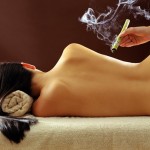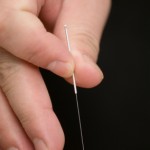Needles, Smoke and Energy – How does acupuncture actually work?
Acupuncture is a natural, drug free and holistic approach to health and wellbeing. It is the art and science of healing which has existed as part of chinese medicine for over 5000 years. Linking body, mind and emotions to affectively treat many common aliments and prevent disease.
 Our bodies contain electrical circuits through which energy passes. For centuries Chinese Medicine has referred to this amazing energy as Qi(Chi) and the circuits as meridians. Modern technology such as Kirlian photography, electronic and thermal readings are now used to detect meridians that were mapped out thousands of years ago.
Our bodies contain electrical circuits through which energy passes. For centuries Chinese Medicine has referred to this amazing energy as Qi(Chi) and the circuits as meridians. Modern technology such as Kirlian photography, electronic and thermal readings are now used to detect meridians that were mapped out thousands of years ago.
The meridians pass through the whole body, through organs, tissues and cells. Like a blood clot in our circulatory system, if the meridian pathways contain blocks the flow of energy is obstructed and our health is put in jeopardy.
Very fine needles can be place in 500 different acupuncture points along the energy pathways, each point links to specific organs, systems and aliments. Stimulating these points with needles, warmed chinese herbs called moxibustion or with suction cups and massage encourages the constant flow of energy.
How can acupuncture help me?
-
Specific Disorders – Relief of symptoms, less complications and reduced recurrence by treating the root cause of the issue.
-
Maintenance – For long term problems acupuncture can reduce pain as well as the need for surgery and medication.
- Prevention – Because Chinese medicine can detect imbalances in energy before they manifest as disease acupuncture is a very affective tool for prevention.
The Treatment Process – How many will I need and what can I expect?
 Your first treatment will involve an interview process that covers current health problems and history including medical, surgical and family health. A physical examination where the tongue and pulse are studied will also be conducted.
Your first treatment will involve an interview process that covers current health problems and history including medical, surgical and family health. A physical examination where the tongue and pulse are studied will also be conducted.
The amount of treatments needed is different for each individual circumstance. Many people do notice a difference after their very first treatment. They may begin to sleep better, feel more at ease or have improved digestion. The type, severity and duration of current problems will all be major factors in how many treatments are needed.
A pointy end to the problem – Acupuncture and Stress
Stress is a word we hear so often in todays society but what does it actually mean? Stress can be one or a combination of many problems.
-
Emotional – Relationship breakdown, loss of a loved one or pet, pressure to reach expectation of others, taking the weight of the world on your shoulders.
- Physical – Taking on extra work, heavy training sessions, persistent illness or disease. Stress related digestive problems. Poor immune function due to diet and lifestyle.
- Hormonal imbalances – such as premenstrual syndrome.
- Low blood sugar – Which may be a result of diet and inadequate exercise.
If life was an ocean then stress is the strong rip that takes hold of you pulling you out to sea. It can appear from no where, taking you by surprise. You can not see it but you can feel it and the more you struggle the harder it seems to sweep you away from the comfort that is land.
The weight of modern day pressures to excel in all facets of life. The fast pace that continues to accelerate as the responsibility of school, work, family and life mount. Maybe you feel tired, find it hard to switch off and sleep, you could be frustrated, lose your temper easily, feel like you want to escape, that you can not cope. Your memory may be poor and you may have bad judgement. You are so frustrated but can not really put your finger on exactly why, the fact is you are just stressed out.
Lets get right to the point
 Acupuncture works on balance, the yin and yang of the body that keeps us aligned, functioning in a healthy and positive way. Bringing harmony to the physical, emotional and mental aspects of the body allows the innate ability of self healing.
Acupuncture works on balance, the yin and yang of the body that keeps us aligned, functioning in a healthy and positive way. Bringing harmony to the physical, emotional and mental aspects of the body allows the innate ability of self healing.
Acupuncture is a natural drug free alternative medicine that has been practiced and proven over thousands of years. Although there are increasing benefits with each treatment many patients feel more at ease and in balance after the very first session. This balance helps people to deal with their stress, clearly identify the cause of problems and move forward with more confidence.
What else can acupuncture help me with?
Neurological: Headaches, migraines, difficulty sleeping, nervous tension, stroke, some forms of deafness, facial and inter-costal neuralgia, trigeminal neuralgia, some forms of paralysis, sequelae of poliomyelitis, peripheral neuropathy, noises in the ears, dizziness, Meniere’s disease.
Cardio-vascular system: High or low blood pressure, fluid retention, chest pain, angina pectoris, poor circulation, cold hands and feet, muscle cramps.
Respiratory System: Bronchial asthma, acute and chronic bronchitis, acute tonsillitis, rhinitis, sinusitis, hay fever, chronic cough, laryngitis, sore throat, influenza and the common cold.
Digestive system: Toothache, post-extraction pain, gingivitis, mouth ulcers, hiccough, spasms of the oesophagus, gastric and duodenal ulcers, gastric hyperacidity, gastritis, heartburn, hiatus hernia syndrome, flatulence, paralytic ileus, colitis, diarrhoea, constipation, haemorrhoids, liver and gall bladder disorders, weight control.
Uro-genital system: Cystitis, prostatitis, orchitis, low sexual vitality, urinary retention, kidney disorders, nocturnal enuresis, neurogenic bladder dysfunction.
Gynaecological and obstetric disorders: Premenstrual tension, painful, heavy or irregular, or the absence of periods, abnormal uterine bleeding or discharge, hormonal disturbances, disorders associated with menopause, prolapse if the uterus or bladder, difficulty with conception, morning sickness.
Skin: Eczema, dermatitis, psoriasis, nerve rash, herpes zoster, acne scar tissue and resultant adhesions, hair loss and dandruff.
Eyes: Visual disorders, red, sore, itchy or watery eyes. Conjunctivitis simple cataracts, myopia in children, central retinitis.
Musculo-skeletal system: Osteoarthritis, sciatica, lumbago, weak back, low back pain, rheumatoid arthritis, gout, tenosynovitis, should and neck pain, cervicobrachial syndrome, frozen shoulder, tennis elbow.
Sporting injuries: Sprained ankles and knees, cartilage problems, corking and tearing of muscles, torn ligaments and bruises.
Psychological: Depression, phobias, emotional disturbances, anxiety, nervousness and addictions such as smoking.
The Medical Sanctuary
